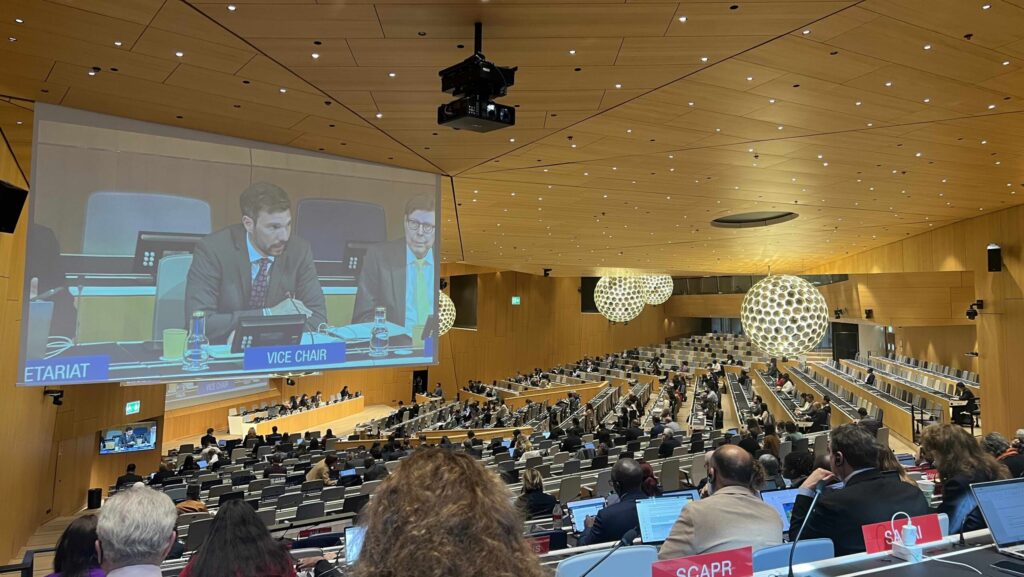The lunchtime side event was Copyright and AI: It’s not just about the cultural industries organised by Knowledge Ecology International (KEI) featuring KEI’s Jamie Love, Dr Viviana Muñoz Tellez (South Centre), Jonathan Band (Library Copyright Alliance) and Richard Mollet (RELX). The session took a step back and sought to present the questions around copyright and AI under the premise that maybe different legal regimes should apply when dealing with research on the one hand and rock n roll on the other. Love and Muñoz Tellez provided examples of different cases, from the EU Regulation on the European Health Data Space, to annexes to the Berne Convention as well as a graphic representation of different AI models according to their openness and data sources. Band and Mollet were two late additions to the line-up and delivered contrasting views on how to tackle issues around Generative AI from the issue of training data (‘Input, let’s not focus on that’ according to Band vs ‘grand larceny’ according to Mollet). Mollet also underlined the need for transparency in AI models especially in a medical or legal context so that the outputs can be judged on the proviso that the inputs are completely reliable. Band and Mollet agreed that responsible crawling of websites was necessary to ensure rights reservations are obeyed.
The previous evening’s side event also came up during the discussion (which is useful way for me to segue from one side event to another). That side event, Promoting AI for Good in the Global South, organised by A2K Latin American Alliance, Fundación Vía Libre had brought together Ben Cashdan, ReCreate (South Africa), Prof Beatriz Busaniche (Via Libre, LatAmGPT project), Alexandra Garcia, Prof Gloria Emezu (Nigerian languages project), and Chebet Koros (Strathmore University). The session switched between criticism of Big Tech for leaving the global south behind and not representing their cultures, to local AI based initiatives, their licensing difficulties, and ultimately what they perceived as the excessive risk of using copyrighted works without a license.
Back in the plenary Conference Hall, SCCR Vice Chair Peter Labody summarised the progress on Broadcasting using the Chair’s methodology whereby a number of articles were discussed individually and others collectively. While a sense of progress was recognized by many Member States, a Diplomatic Conference did not necessarily feel any closer with a number of issues still to be resolved. Among the observers, there were many calls not to ‘cut the signal’ for libraries and archives, with others recognizing the ongoing efforts to reconcile the needs of broadcasters in combating piracy with the rightsholders of the broadcast works.
The Chair then opened discussions on Limitations and Exceptions. The Chair delivered her perspective on the discussions so far and the feedback that had been received on the draft implementation plan. Acknowledging the range of positions, including some which were incompatible, she reported on her preparatory work ahead of the meeting, alongside regional coordinators, and presented her proposal to try to shake things up and chart a path towards progress. Her proposal was to use facilitated discussions to establish a list of Objectives and Principles, based on all of the raw materials that have been gathered, that could be a cornerstone for a soft law instrument.
The floor was opened to Member States, some of whom would not get a chance to contribute before the session was adjourned. All committed to constructive engagement. Positions on preferences for, or opposition to, legal instruments were re-affirmed.Existing documents, adopted by consensus, were put forward again as the basis for future work.
The afternoon session was brought to a close, with the path towards progress unclear. Member States will have to sleep on it and we will see what day three’s discussions will bring.

